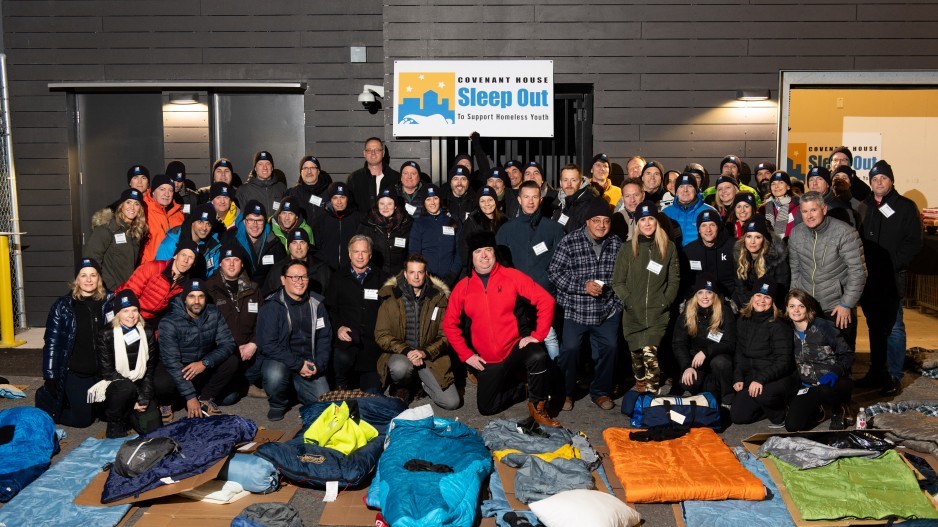The first taste of winter cold was thankfully dry for the few hours of sleep outdoors, a morsel of what those inside the building knew all too well.
The parking spaces behind the freshly built Covenant House were occupied overnight with more than 50 of us inside sleeping bags on a lining of cardboard, the culmination of months of planning and fundraising, but really only a small interruption in our days and not the routine night of those living on our streets.
Too many live outside in our affluence, too little is done inside our governments, so the advantages many of us have are applied out of necessity to this night each year to help finance a 63-bed Crisis Program to nurse back to health and reset the forecast for youths 16 to 24.
There is no particular magic in the continuum of care Covenant House provides unconditionally and respectfully. It applies the science of evidence-based techniques to deal with the trauma in the lives of those who arrive at its doors for help. It works to mitigate the effects of violence, abuse, addiction and compromised mental and physical health.
More than 1,100 pass through its doors each year, including more than 400 through the Crisis Program, and we heard from three before the sleep-out. One, a young woman pursuing a career in acting and music. Another, a graduate of the program, is studying computer science. A young man contemplating work with youth, giving back what he has received in repairing him physically.
They talked relievedly of how different they were from how they arrived, and it was clear that the staff had been some of their first nurturers in some time. Theirs are the optimistic stories, but an absurdity is that Covenant House has to turn many away, a great puzzle in our prosperity and how we allocate it.
Most of those at the sleep-out Thursday are business executives, inherently understanding of a return on investment, and they shake their heads at the languid spending to get young people off the street and into care – if only to avert larger physical, social, judicial and, yes, financial costs later. A dollar today saves many dollars later.
The nearly $1.1 million raised from their networks for Thursday’s event goes some distance, but it’s hardly more than a bucket-drop in the challenge. The sleep-outs have taken hold in 18 communities and this year will raise about $9 million. Vancouver is disproportionately generous as donors, but this should not be work conferred on a community’s benevolence.
As for the experience of sleeping out itself, there are a few takeaways. The hard ground exhausts almost as much as it relieves, and hips and shoulders ache after only a few hours. Sound is incessant, mostly the white noise of traffic, and even a deep sleeper will awaken many times. Light is surprisingly invasive but necessary, because sleeping in a dark place is more dangerous. The dry night was a gift, but even with the advantage of the best coats for the weather, people struggled in the chill and wondered how anyone could endure this each night.
They do endure, somewhere around 750 to 1,000 of them aged 16 to 24 in Vancouver alone, and we need to see the day when something as wondrous as Covenant House is no longer needed. Until then, though, there will be more fundraising, more ministering of the insufficient resources of government, and more of us in the cold for one night to keep others out of it.
Kirk LaPointe is editor-in-chief of Business in Vancouver and vice-president, editorial, of Glacier Media.




